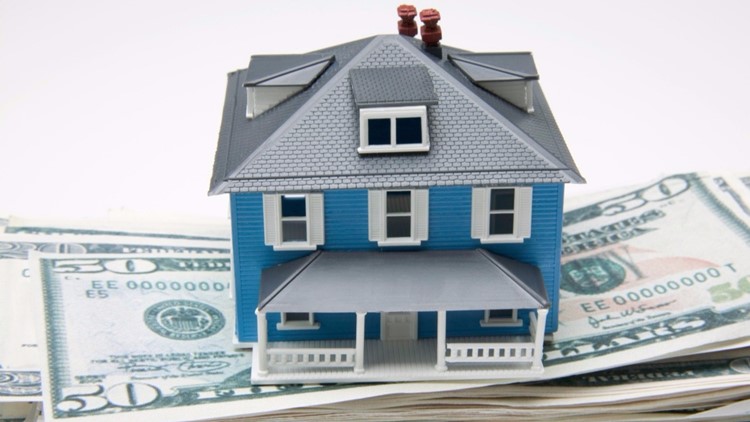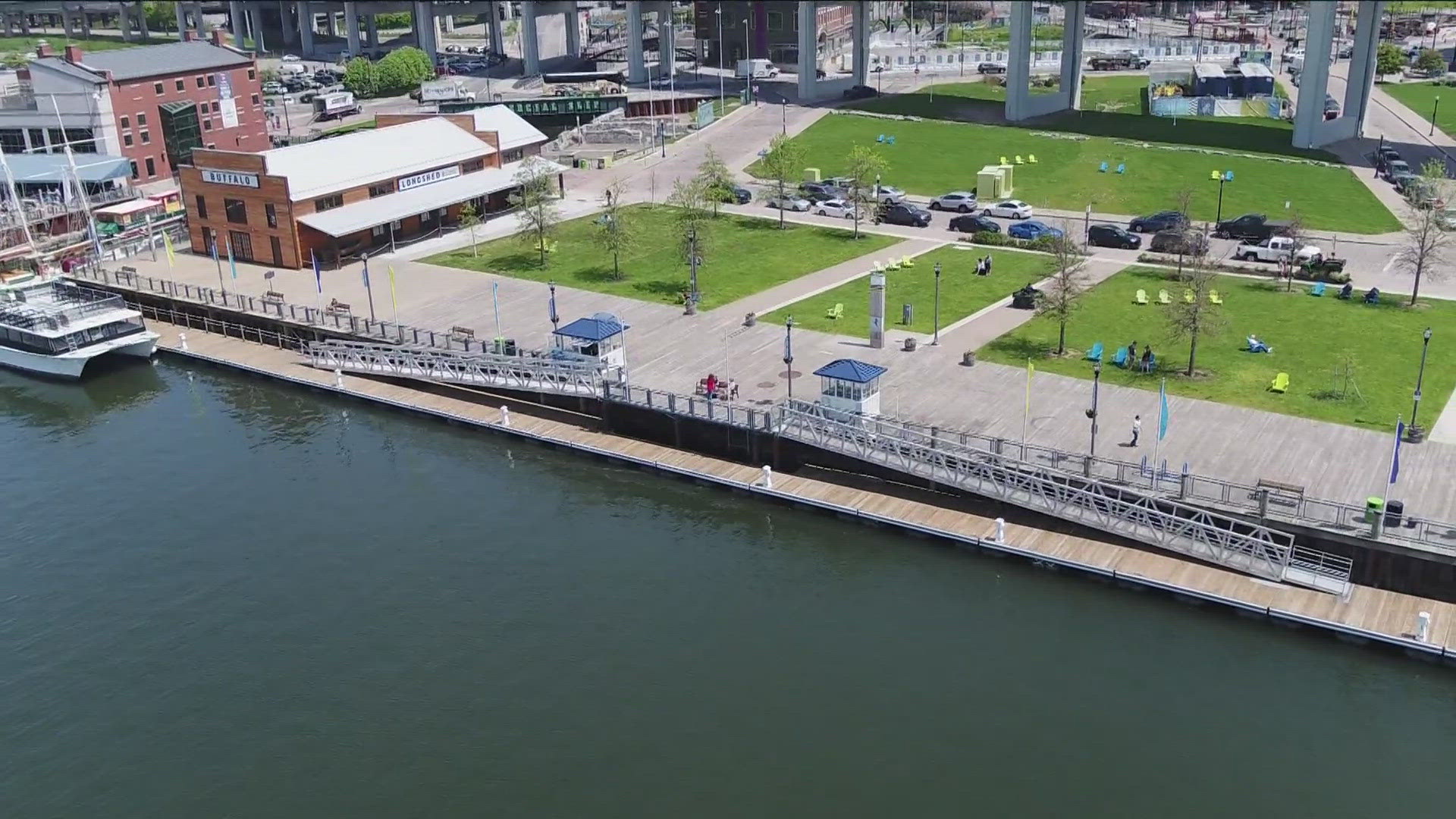ALBANY -- A debacle. Frustration. An unworkable situation.
Those were some of the descriptions Tuesday by lawmakers over the state's failure to process some of the millions of rebate checks due to New York homeowners through a variety of property-tax-relief programs.
"I, like my colleagues, have a lot of upset, frustrated constituents who are homeowners who haven’t gotten their credit checks," said Sen. Cathy Young, R-Olean, Cattaraugus County.
Lawmakers grilled the head of the state Department of Taxation and Finance for two hours at a budget hearing that focused on the ongoing troubles of getting taxpayers the rebate checks for three programs the state is running.
Problem with STAR checks
Much of the focus was on the STAR rebate checks. New York spends $3 billion a year to give property owners a saving on their school taxes.
As part of a law last year, new homeowners are getting checks to pay for a portion of their annual school taxes, rather than previously getting the money as an upfront rebate on their school-tax bill each fall.
The problem, though, is the state has been slow to get the checks out in time to some residents to pay their school bills in September.
That has led to confusion, anger and some people having to take out loans to pay their tax bills, lawmakers said.
The money is significant: The basic STAR credit last year was $750, while eligible seniors were to get an average of $1,400 for Enhanced STAR.
"People have not been able to communicate with your office. They can’t find out where the check is,"
Assemblywoman Sandra Galef, D-Ossining, Westchester County, said to tax officials. "They don’t know when it’s coming. They don’t know what it is for."
Why the delay?
Nonie Manion, the executive deputy commissioner for the tax department, testified and acknowledged a series of problems the department faced in getting the program up and running.
For one, the state Legislature approved the STAR change last April and it needed to be implemented by late summer, putting extraordinary stress on the department because of the tight time frame, she said.
The agency also had to gather tax data from every assessor's office and school in New York and calculate the check amount for each homeowner.
In an initial batch, about 1,500 were wrong -- causing further caution by the department before more checks were released.
"That information is coming in from so many different sources, and it comes in different forms and formats," Manion testified.
"And because it has not been used in a standardized way in the past, we get very different information from all of the different localities."
Her testimony was also interrupted by protestors who stood in front of the hearing and shouted, "Tax the rich, defend New York." They were urging the state to increases income-taxes on the rich.
People wrongly applied
After the hearing, Manion said that the department initially estimated it would need to send out about 120,000 STAR checks last year to new homeowners or people who moved.
It sent out about 107,000, but it's unclear how many are outstanding. Part of the reason is this: 31,000 people wrongly applied for the program, thinking they were eligible but actually weren't.
So that created even more confusion for residents and the state. And then the state sent out letters to those 31,000 people telling they were not eligible.
"We have people that registered that believe they’re getting the STAR, and they are not," Manion said. "They are not entitled to it for a number of reasons. We have a lot of people who already received the exemption."
The checks are only going to people who bought their homes after Aug. 1, 2015. They must register with the state tax department.
If people bought their homes between May 1, 2014, and Aug. 1, 2015, they had to register for a check if: They bought their homes after the 2015 STAR application deadline or if they never applied for the STAR benefit on their primary residence.
For everyone else, nothing changes. They will still get their STAR as an upfront savings.
Tax-free checks outstanding
So that's just the STAR rebate-check situation.
The tax department has issued more than 2 million property-tax rebate checks since the fall for a whole separate initiative. Some are still going out.
Those checks are the combination of two programs: the last year of a property-tax "freeze" program that reimburses homeowners for the increase in their municipal taxes and the first year of another tax-relief credit.
For those eligible, the tax-relief portion is $185 for upstate residents and $130 downstate.
So the combined check for both programs is about $280, according to the state Budget Division.
Households with income less than $500,000 are getting the "freeze" check. The tax-relief credit is for incomes of $275,000 or less.
And the checks were only sent in communities whose local governments stayed under the property-tax cap.
Double standard
Some residents have complained that those checks, too, have been slow to come.
Lawmakers said the situation is unfair: If people don't pay their taxes, they are penalized. But if the state doesn't meet its deadlines, nothing happens.
People aren't entitled to interest on the delayed checks or alleviated of penalties if their school taxes are paid late because they are waiting for the STAR check, legislators said.
"I’m pretty sure if one of my constituents call up and says, ‘You know, I’m 30 days late, but my dog ate my application and my tax filings. Or I accidentally put it in the fireplace to start a fire.’ That’s not going to work," Sen. James Tedisco, R-Glenville, Schenectady County, said.
Some lawmakers have introduced bills to go back to the old STAR system, saying the current process is a disaster.
Others are seeking to get the state to reimburse people for any late fees or penalties they may have incurred.
"Why didn’t we take our time and do it right and roll it out correctly?" questioned Assemblyman Steve McLaughlin, R-Schaghticoke, Rensselaer County, asked. "We’re seeing the results of moving too quickly."
Little testing
McLaughlin asked if the STAR check initiative was even tested and verified to see if errors might be found.
"The timing did not allow that," Manion responded.
But the state seems to like the change: Schools are able to get their reimbursements from the state upfront and once the system is better developed, the problems should be resolved, Manion said.
The state should ultimately be able to track the status of a check, as they do now with income-tax returns.
Right now, because the system is being done manually, it's hard to tell people who call the state's tax department hotline if and when their checks may arrive.
And that's led to more frustration by people waiting for checks.
"That’s why I’m confident, given some time and given experience with the data, we can set up the system where it will be automated and we will be able to do that in-time check," Manion said.
Who must register for STAR
For the new STAR checks, here are the eligibility requirements:
-- Those who bought their homes after Aug. 1, 2015, must register with the state Department of Taxation and Finance.
-- Those who bought their homes between May 1, 2014, and Aug. 1, 2015, must register if: They bought their homes after the 2015 STAR application deadline or if they never applied for the STAR benefit on their primary residence.
Owners who purchased their homes before May 1, 2014, don’t need to take any action. They will continue to get the STAR exemption on their property tax bills.
Register at the Tax Department’s website or call 518-457-2036 from 8:30 a.m. to 4:30 p.m. to enroll or ask any questions.



